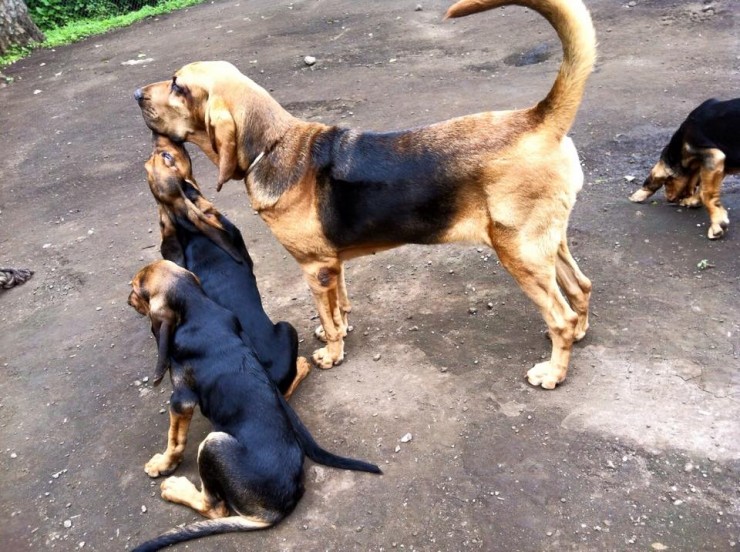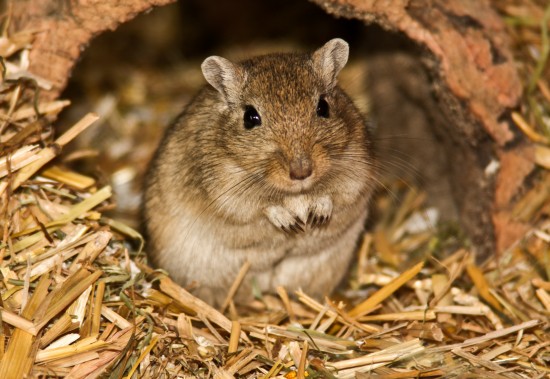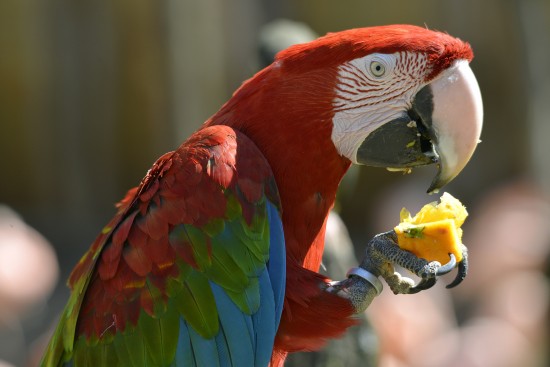

One breed of dog that used to be very widely owned and worked in the UK, but that you don’t really hear much about of recent times, is the Bloodhound. The Bloodhound is so named because of its superior scenting ability, which has historically been used to track people as part of searches for all kinds of things from escaped criminals to missing children.
The Bloodhound has the most highly developed sense of smell of any dog breed in the world, and they are widely considered to be the world’s most adept scent hound. They can pick up even faint human odours several days after the person in question has passed through, and can follow them over huge distances, including over water, which is something that most dogs fail to manage! As well as their amazing olfactory acuity, the Bloodhound is also highly tenacious and has strong tracking instincts, making them a popular choice of working dog for a variety of law enforcement agencies worldwide, as well as organisations that provide search and rescue services for missing persons.
Within the last few years, the Bloodhound has added a new notch to their collars as well; they are now also used in parts of Africa to scent out and track elephant poachers, as part of attempts to protect Africa’s dwindling elephant populations.
Read on to learn more about how this historical dog breed helps to protect endangered elephants in parts of Africa.
The African elephant is native to many countries in Africa, including the Democratic Republic of Congo, which houses the large Virunga Park area, designated as a UNESCO World Heritage Site.
While African elephants used to be prolific within the Congo and other parts of Africa, elephant poaching during the 20th century decimated their numbers, going from estimated figures of 3-5 million elephants in Africa during the 1930’s and 1940’s, right down to around just 600,000 by the 1990’s, with numbers continuing to decline.
Elephants are popular with poachers due to the high value that can be commanded for elephant ivory, which comes from the large tusks of these noble mammals. These are sought as souvenirs and in traditional medicine within certain African communities, as well as being desirable with trophy hunters from both Africa and Western nations.
Because of the dwindling numbers of African elephants left in the wild, the elephant is now considered to be an endangered species, and hunting elephants and trading in ivory is illegal across most of the world.
However, this has done little to stop illegal elephant poachers and ivory hunters, who pose a significant threat to the remaining elephant population of Africa, often targeting conservation areas and national parks where African elephant populations should theoretically be protected.
In early 2012, rangers of Virunga Park in the Democratic Republic of Congo purchased five Bloodhounds, which were then trained to track poachers in the park after incidents involving elephant poaching reached an all-time high.
Within the first week of the dogs starting work, a cache of illegal weapons was found, and this was just the beginning!
As well as housing elephants, Virunga Park also plays home to chimpanzees, gorillas, buffalo and other wildlife, which is protected within the borders of the park. Over 300 rangers are employed on a full time basis to police the park and prevent and tackle poaching, however, the park is commonly targeted by criminal groups including rebel factions, illegal miners and poachers.
The Bloodhound programme within the park is supported by volunteers from Germany, and help from a specialist Swiss centre to help to protect the park’s elephants from ivory poachers.
The Bloodhound pack’s first live hunt took place within a couple of weeks of their installation in the park, when rangers found a dead elephant whose tusks had been removed on the edge of the park. The canine unit was deployed by helicopter, and the dogs tracked the scent of the poachers from the elephant’s corpse to a village four miles away, where rangers discovered a group of poachers who opened fire before fleeing the scene, leaving their weapons behind in their haste.
The European Union helps to fund the project to protect the park’s elephants, and today, continues to work with rangers and conservation specialists in the park to train and deploy Bloodhounds and other working dogs as part of the fight against elephant poaching.
While the Bloodhound is nowhere near as common a sight on the streets and in the dog parks of the UK as it used to be, the breed is still popular within working roles in other areas of the world, as demonstrated by the success of the poaching detection dogs in the Congo. As news of the dog’s working role and success at tackling poaching spreads, it is entirely likely that the popularity of the Bloodhound, both as a pet and as a working dog, will rise again in the UK and in other countries too!
 Obedience Training For Puppies - 6 Commands You Should Know About
Puppy quick training tips
An appropriate dog obedience
Obedience Training For Puppies - 6 Commands You Should Know About
Puppy quick training tips
An appropriate dog obedience
 Essential Tips for Taking Good Care of Our Pets
Essential Tips for Taking Good Care of Our Pets
Essential Tips for Taking Good Care of Our Pets
Essential Tips for Taking Good Care of Our Pets
 The Lovely Mongolian Gerbil
The Lovely Mongol
The Lovely Mongolian Gerbil
The Lovely Mongol
 Digestive Problems In Birds
Digestive Problem
Digestive Problems In Birds
Digestive Problem
 Simple Methods to Come Across a Great Dog Boarding NJ Vendor
You can also find a wide number of arguments that may sway
Simple Methods to Come Across a Great Dog Boarding NJ Vendor
You can also find a wide number of arguments that may sway
Copyright © 2005-2016 Pet Information All Rights Reserved
Contact us: www162date@outlook.com